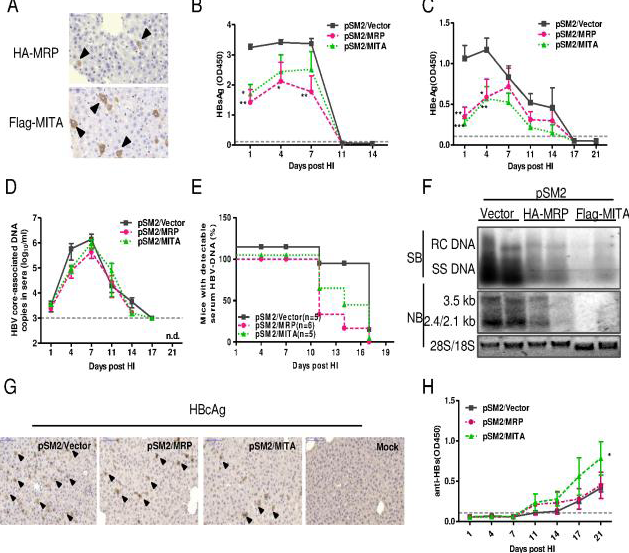Scientists reveal that MITA/STING plays an important role in triggering HBV specific adaptive immune responses
Date:27-02-2017 | 【Print】 【close】
An efficient clearance of hepatitis B virus (HBV) requires the coordinated work of both the innate and adaptive immune responses. MITA/STING, an adapter protein of the innate immune signaling pathways, plays a key role in regulating innate and adaptive immune responses to DNA virus infection. Previously, the Research Group of Molecular Biology of Hepatitis Viruses and Gene Therapy led by Prof. Xinwen Chen in WIV identified an alternatively spliced isoform of MITA/STING, called MITA-related protein (MRP), and found that MRP could specifically block MITA-mediated interferon (IFN) induction while retaining the ability to activate NF-κB.
Here, the scientists from WIV asked whether MITA/STING and MRP were able to control the HBV replication. Both MITA/STING and MRP significantly inhibited HBV replication in vitro. MITA overexpression stimulated IRF3-IFN pathway; while MRP overexpression activated NF-κB pathway, suggesting these two isoforms may inhibit HBV replication through different ways. Using a hydrodynamic injection (HI) mouse model, we found that HBV replication was reduced following MITA/STING and MRP expression vectors in
mice and was enhanced by the knockout of MITA/STING (MITA/STING-/-). The HBV specific humoral and CD8+ T cell responses were impaired in MITA/STING deficient mice, suggesting the participation of MITA/STING in the initiation of host adaptive immune responses. In summary, their data suggest that MITA/STING and MRP contribute to HBV control via modulation of the innate and adaptive responses.
